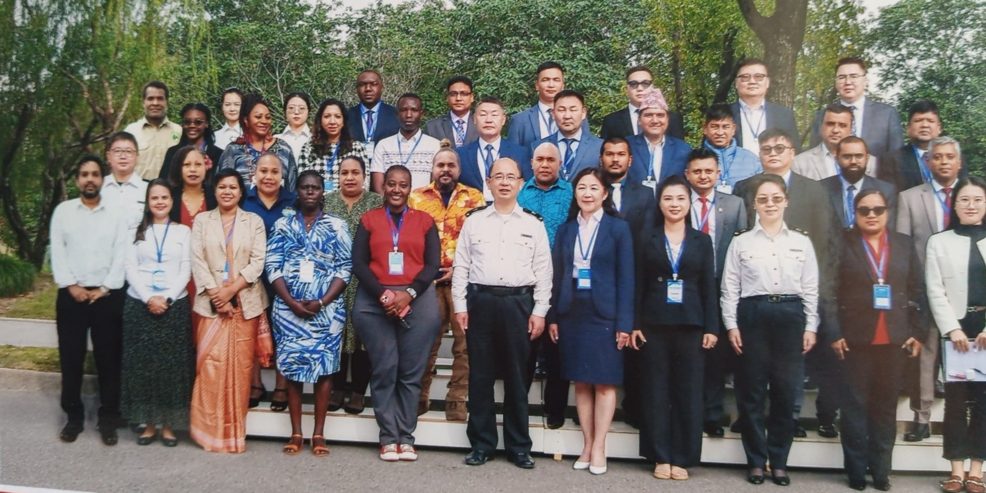Planning and Biosecurity Officers at the Ministry of Agriculture and Livestock (MAL) have recently undergone a workshop focused on China’s customs regulations, biosecurity protocols and import inspection processes at Shanghai Customs University.
Three senior MAL officials attended the workshop from 23rd October to 05th November 2024.
The training focused on the procedures for exporting agricultural products to China.
PrincipalPlanning officer, Alista Talua, Principal Biosecurity Officer, Steward Teoga, and Chief Biosecurity Officer Market and trade, Mr Luke Kiriau, with officials from Solomon Islands Customs, Ministry of Commerce and Trade, with participant from Africa, South America and Asia attended the training.
The seminar provided essential information on China’s customs regulations, biosecurity protocols, and inspection processes that are crucial for Solomon Islands exporters looking to tap into the Chinese market.
Chief Biosecurity Officer Market and Trade, Mr Luke Kiriau said, China is one of the largest and most important trading partners for the Solomon Islands, particularly for agricultural exports.

However, navigating China’s import regulations can be complex, requiring compliance with strict sanitary and phytosanitary(SPS) standards, certifications, and quarantine procedures.
He said the seminar shed light on the critical steps exporters must take to ensure smooth and successful exports of agricultural goods to China.
Mr Kiriau highlighted that the key take-aways from the seminar, is Customs and Inspection Requirements, where all products exported to China must meet China’s biosecurity standards which include receiving appropriate health certificates, phytosanitary certificates, where all arrival products will have to undergo inspection and quarantine procedures by China’s General Administration of Customs and National Plant protection Organisation, to ensure our products are free from pest and disease and contaminants
He said that Biosecurity and risk management is crucial in maintaining strict biosecurity measures including pest risk analysis and treatments such as fumigation to safe guide China agriculture and environment.
Successful exporter to China hinges on having the proper documents such as health certificates, origin certificates, and compliance with China’s specific standard for each product type, this ensure that our products meets China’s high- quality standards that are fit for human consumption.
Mr Kiriau said market access and opportunities for Solomon Islands were also presented during the workshop, highlighting important strategies required to gain access to China’s vast market.
Therefore, the need for right training and resource that will enable Solomon Islands align with China import requirements, our agriculture sector will benefit from trade between the two countries.
Mr Kiriau strongly believe that raising awareness about the requirements and opportunities for local farmers will provide essential knowledge to improve our trade with China.
Mr. Kiriau on behalf of the MAL team, thanked the Chinse Embassy in Solomon Islands for making their trip a success.
- MAL









